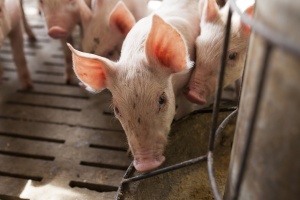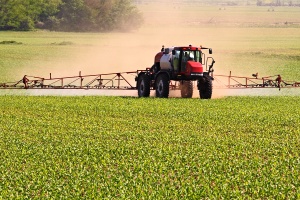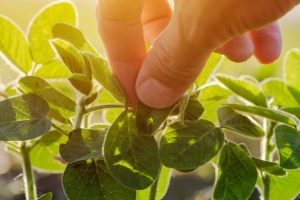What I Witnessed on an Illinois Farm
As a City Mom for Illinois Farm Families, I’ve gotten a chance to see behind the scenes on several Illinois farms, and I have to say that I learn more with each one that I visit. This spring, we were given the opportunity to tour the Adams’s cow/calf operation, and to talk with their family as well as other women who work on their own family farms doing similar work.
The thing that stood out most to me on this tour was the human-animal connection. I have a soft heart, and I tend to be very concerned with animal welfare and humane treatment. On this tour, I got a chance to have more informal conversations with the farmers, and in those conversations, the connections that these people have with their animals was obvious.
On the bus, Sarah Prescott, who has a cow/calf operation with her husband in Springfield, IL, was telling us about her typical day with her cows, and she shared with us a story about Trixie. While Sarah admitted that she couldn’t name all 120 of her cows and hope to keep all of them straight, she has a definite connection with Cow 1314, or Trixie, as she and her daughters call her. Trixie is the bovine version of Sarah, me, and I think pretty much any mother these days in some ways. She’s got crazy hair…well, fur, I guess. She’s always going a little crazy looking for her calf, making sure that everything is going right and hustling the little one along. She worries constantly, sometimes even when it’s not her calf that’s upset. In watching Sarah talk about Trixie, there was no doubt in my mind about how much she cares for her animals.
On the farm, farmer Alan Adams and I were having a side chat about the future of farming, and I was telling him about my daughter, who has dreams of being in some kind of animal welfare field. I mentioned how much she loved watching cows give birth at a farm we visit in Indiana, and we started talking about what a miracle it is. Alan’s face softened as he told me that “helping cows give birth gives you your best days and your worst days”. When farmers are able to help a cow through labor and celebrate a new calf, it’s a joyous occasion every time. But in the times when something goes wrong, Alan says that it ruins your whole day. The loss is heavy and deep. I could see it in his face as he talked about it.
There’s a lot of talk these days about “factory farms” and animal welfare, and I think it’s an important discussion to continue. There may be farms out there that treat their animals as strictly a product for profit or loss, but I can tell you that from all of the farms that I’ve had the chance to visit over the last year as a City Mom, I haven’t seen anything even close to that. I’ve seen farmers somber and quietly grieve while looking at piglet that isn’t thriving like it should, despite their best efforts. I’ve heard them talk about cows like they were relatives in their own families, sharing tales of goofy things they’ve done and teasing them for their quirky habits. I’ve seen that these animals may not physically be in the care of these farmer for their entire lives, but the farmers care for them through the entire process, going so far as to visit the feed lots and processing plants to make sure that their animals will be treated properly and respected throughout their journey.
When you buy beef, I think it’s important to recognize the connection to the animal that meat comes from, to the farms that it grew on, and to the farmers who cared for it. It’s not a job that they take lightly, and as a consumer, I appreciate all the care that goes into getting that meat to my family’s plates.











0 Comments